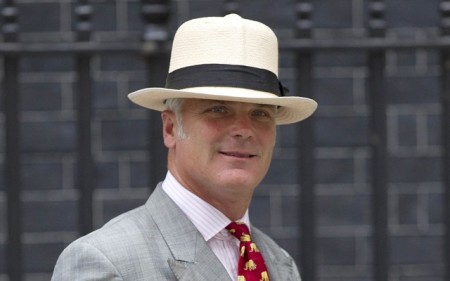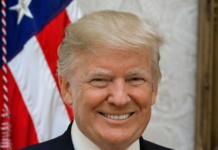UK Minister of State for the Department of International Development Desmond Swayne on his recent visit to Ghana announced a new £4 million support towards Deepening Democratic Governance Programme.

Ghana is seven months away from holding Presidential and Parliamentary Elections on 7 November. UK’s expectation is that Ghana will deliver peaceful and credible elections, building on its already impressive track record. Having held 6 free and fair elections since the end of military rule, Ghana is already “best in class” in the region and indeed amongst the very best electoral democracies in Africa the minister said.
Desmond Swayne said: The UK is interested in helping to enhance Ghana’s strong effort, recognising that each election cycle presents new challenges, which mandated institutions are required to respond to. The UK has been steadfast in its commitment to Ghana’s democratic transformation, most recently disbursing over £6 million to support election in 2012.
Our new programme of support will focus on three main areas over a period of five years. Firstly, state institutions. We are already well acquainted with Ghana’s Electoral Management Bodies, the Electoral Commission; the Judiciary and the Ghana Police Service. Our aim is to identify and agree priority needs where the UK can best lend support, based on our comparative advantage, including assisting with some critical institutional reforms following the elections, where there is clear evidence of strong national commitment.
Secondly, it is our intention to enhance existing support through the multi-donor Strengthening Transparency Accountability and Responsiveness Programme, better known as STAR Ghana, which offers assistance to civil society organisations. Here, we have a specific focus on doing more to support the inclusion of women, youth and persons with disabilities.
Thirdly, we want to be flexible and opportunistic in our support, this includes being ready to respond in helping national partners to tackle unforeseen challenges which may have a destabilising impact. Regional experiences have taught us the importance of being prepared and alert to the risk of electoral related violence. So our support includes a rapid response facility that allows us to respond to challenges as they emerge. If all goes well – and we sincerely hope it does – we won’t need to draw on the rapid response facility. That will be a sign of success, not failure.
Lastly, the programme focuses strongly on sustainability. We want to work with national partners to achieve lasting results, reducing the dependency on international assistance in this area. We envisage this to be our final electoral assistance programme to Ghana. It is our intention to exit from this area by 2020.
There is a very clear and strong rationale for this exit from further electoral assistance by 2020. Ghana has an unrivalled record in the region for delivering peaceful and credible elections. In 2020, the country will be holding its 8th democratic elections. Ghana is also ranked as a Lower Middle Income Country, which calls for greater self-financing of critical aspects of its own development. So the UK’s withdrawal from supporting electoral processes in Ghana is a positive sign of Ghana’s success, and reduced reliance on external finance.
Prior to his arrival, the minister said: I heard quite a lot about how the elections this year were shaping up to be more challenging than in the past. Let me be clear that the UK’s only interest is that the outcome is peaceful and represents the will of Ghanaian people. My Government will work with whichever Government Ghana chooses.
But we do want Ghana to protect and further enhance its reputation as a beacon of democracy that others across Africa can emulate. For that to happen, the people and the political parties need to work with the police to resolve concerns, not rely on militia groups; and all involved need to respect Ghana’s electoral laws and codes of conduct.
If our support can help Ghana achieve that result in 2016 and beyond, it will prove to be a very worthwhile investment indeed, the minister concluded.








